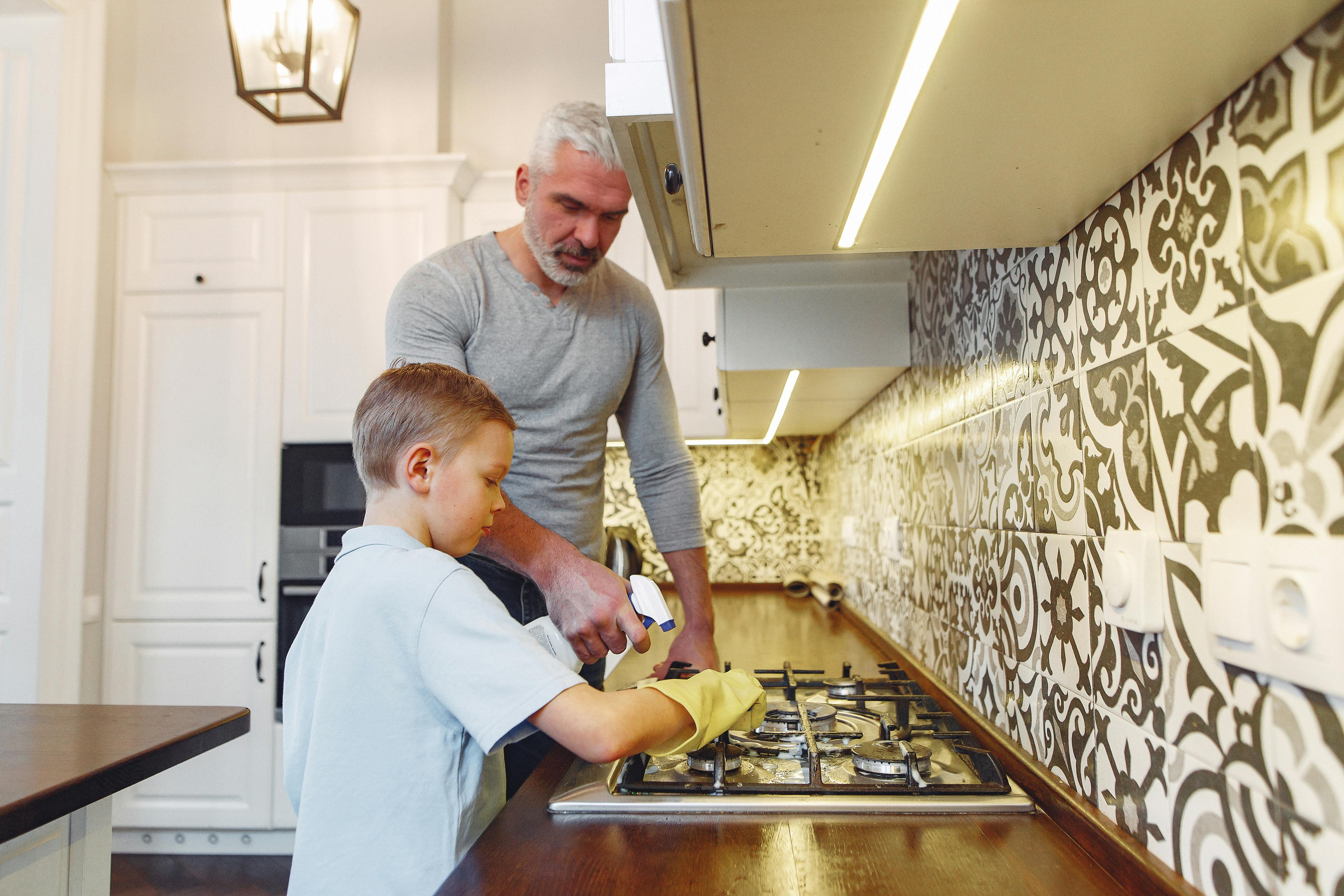
In Depth: Corian Countertops
Corian, developed by Dupont in 1967, is a man-made material that is solid, homogeneous and non-porous, making it the perfect surface for a kitchen countertop. To make Corian, simply mix one part polymethylmethacrylate (PMMA) acrylic resin with two parts crushed natural minerals (try aluminum trihydrate, derived from bauxite ore). Add some catalysts, pigments, stabilizers and UV absorbers. Heat, mix and let it harden: you have Corian. Using a temperature of 300°F (150°C), you can thermoform Corian after it has hardened and create, say, custom-sized Corian countertops for your kitchen remodel.
In addition to Corian’s primary use for bathroom vanities, kitchen countertops, and shower enclosures, the material has uses in hospitals and laboratories, primarily due to its hygienic properties. In addition to using this material for domestic kitchen countertops, Corian is also perfect for surfaces used in commercial food preparation, healthcare, testing facilities, and chemical laboratories.
First sold in the late 1960s, Corian countertops were conceived early on as an integral part of the new kitchen remodeling industry, even though the material was only available in a couple shades of beige and white. Today, there are more than a hundred colors and patterns of Corian, including patterns that mimic granite or marble. Many buyers of Corian countertops for a kitchen remodel have said that they prefer Corian over granite not only because of its appearance, but also because of its easy maintenance and non-porous surface.
A cross section of Corian will show you the even distribution of particles and color throughout the material. This uniform homogeneity comes into play when building Corian countertops for a kitchen remodel: the joints can be completely sealed using the two-part Corian acrylic epoxy of the same color as the adhesive. Once clamped and allowed to dry, then sanded to remove excess adhesive, and then polished, the countertop joint will be completely invisible. In the same way, a continuous backsplash can be added to a countertop.
One of the problems with Corian is that it scratches much more easily than granite, making the material vulnerable to knife cuts (although any scratches and nicks can be polished smooth with an orbital sander). Corian, being a thermoformed material, is vulnerable to burns from hot metal such as a pan or pot. And then there’s the cost: Although Corian is one of the most affordable “high-end” countertop materials, Corian countertops can still cost more in a kitchen remodel than traditional countertop material options, like wood.
On the other hand, there are many patterns and colors to choose from with Corian. Seams can be made that are almost invisible. The surface is easy to clean and non-porous, so it does not support the growth of bacteria or fungi. Corian is inert and non-toxic; even when burned, Corian emits only CO and CO2. Corian is a “green” material, manufactured to strict standards to limit waste and energy consumption, and has low VOC (volatile organic compound) emissions.